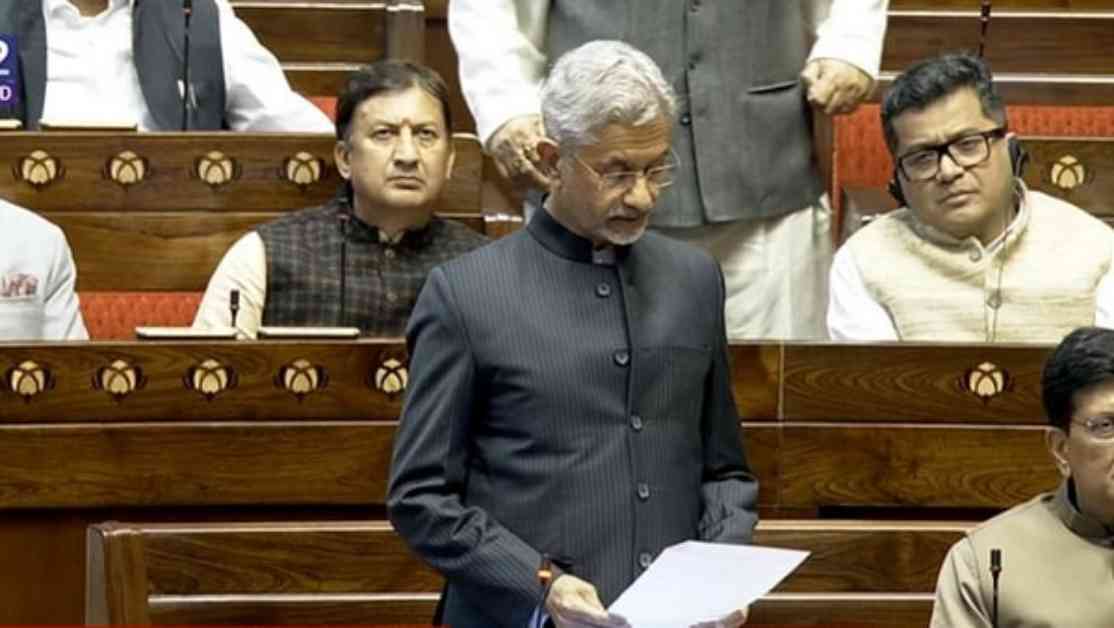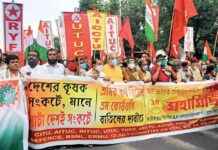Indian Minister of External Affairs, S. Jaishankar, recently addressed Parliament regarding concerns over the mistreatment of Indian nationals facing deportation from the United States. Jaishankar reassured lawmakers that the Indian government is actively working with US authorities to safeguard the rights of its citizens during deportation processes, emphasizing the importance of legal mobility and humane treatment.
During his address to the Parliament, Jaishankar shed light on the organized nature of deportations carried out by US Immigration and Customs Enforcement (ICE) authorities. He highlighted that ICE’s Standard Operating Procedure (SOP) for deportations via aircraft, implemented since 2012, includes provisions for the use of restraints. However, Jaishankar noted that ICE has assured that women and children are not subjected to such restraints during deportation proceedings.
Jaishankar underscored the fundamental obligation of all nations to repatriate their citizens found to be residing illegally in foreign countries. He expressed the Indian government’s ongoing engagement with the US administration to ensure that deported individuals are treated with dignity and respect, without facing any form of mistreatment.
“It is our shared interest to promote legal mobility while discouraging unauthorized movements,” Jaishankar stated, emphasizing the pivotal role of mobility and migration in strengthening international relationships. His remarks in the Rajya Sabha, amid protests and disruptions by opposition members, set the stage for further discussions in the Lok Sabha later in the day.
As the story continues to evolve, it is crucial to monitor updates for further developments in this ongoing dialogue between the Indian and US governments regarding the treatment of deported individuals.
Expert Insights on Human Rights and International Relations
In light of the recent discussions surrounding the mistreatment concerns of deported Indian nationals, experts in human rights and international relations have weighed in on the significance of upholding humane standards in deportation procedures. Dr. Priya Sharma, a leading scholar in migration studies, emphasizes the importance of respecting the rights and dignity of all individuals, regardless of their legal status.
“Deportation processes should prioritize the well-being and safety of vulnerable populations, such as women and children, to ensure that they are not subjected to unnecessary harm or trauma,” Dr. Sharma notes. She further highlights the crucial role of diplomacy and bilateral cooperation in addressing these complex issues on a global scale.
As nations grapple with the challenges of migration and mobility, it is imperative for governments to work together in upholding human rights principles and fostering a more inclusive and equitable society for all individuals, irrespective of their nationality or legal standing.
Future Prospects for Bilateral Engagement
Looking ahead, the collaborative efforts between India and the US in addressing mistreatment concerns during deportation processes signal a broader commitment to upholding human rights and fostering positive diplomatic relations between the two nations. As both countries navigate the complexities of migration and mobility in an increasingly interconnected world, the need for dialogue and cooperation remains paramount.
By prioritizing the humane treatment of deported individuals and promoting legal mobility, India and the US can set a positive example for other nations facing similar challenges. The ongoing engagement between the two governments reflects a shared commitment to protecting the rights and dignity of all individuals, regardless of their national origin or legal status.
As this story continues to unfold, it underscores the importance of diplomacy, dialogue, and mutual respect in addressing complex issues related to migration and human rights on the global stage. Stay tuned for further updates on this evolving dialogue between India and the US regarding the treatment of deported individuals.


























